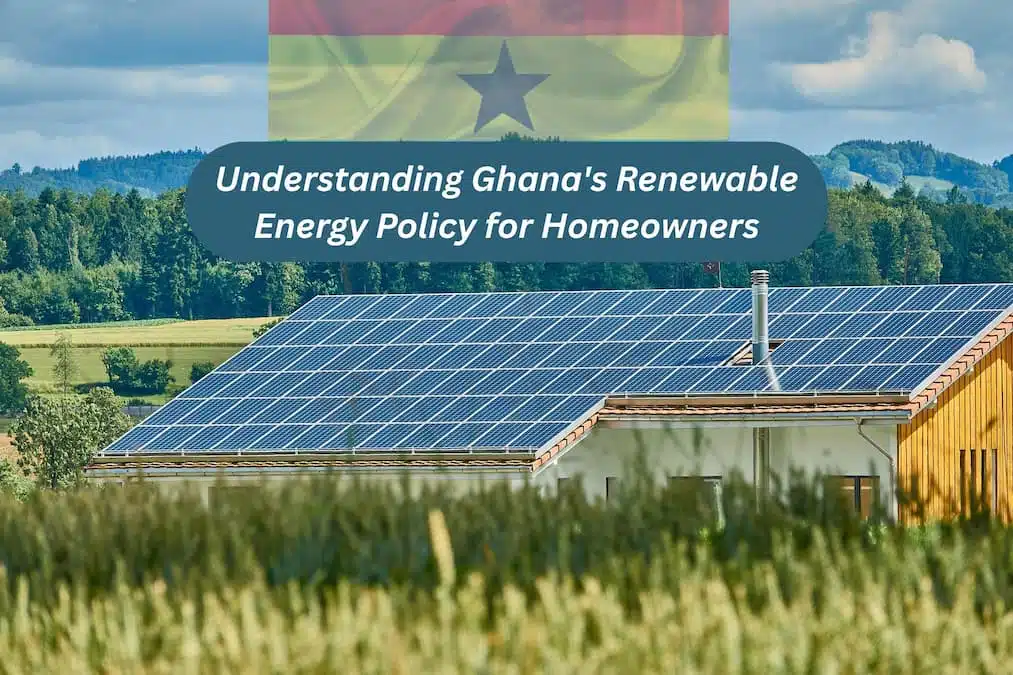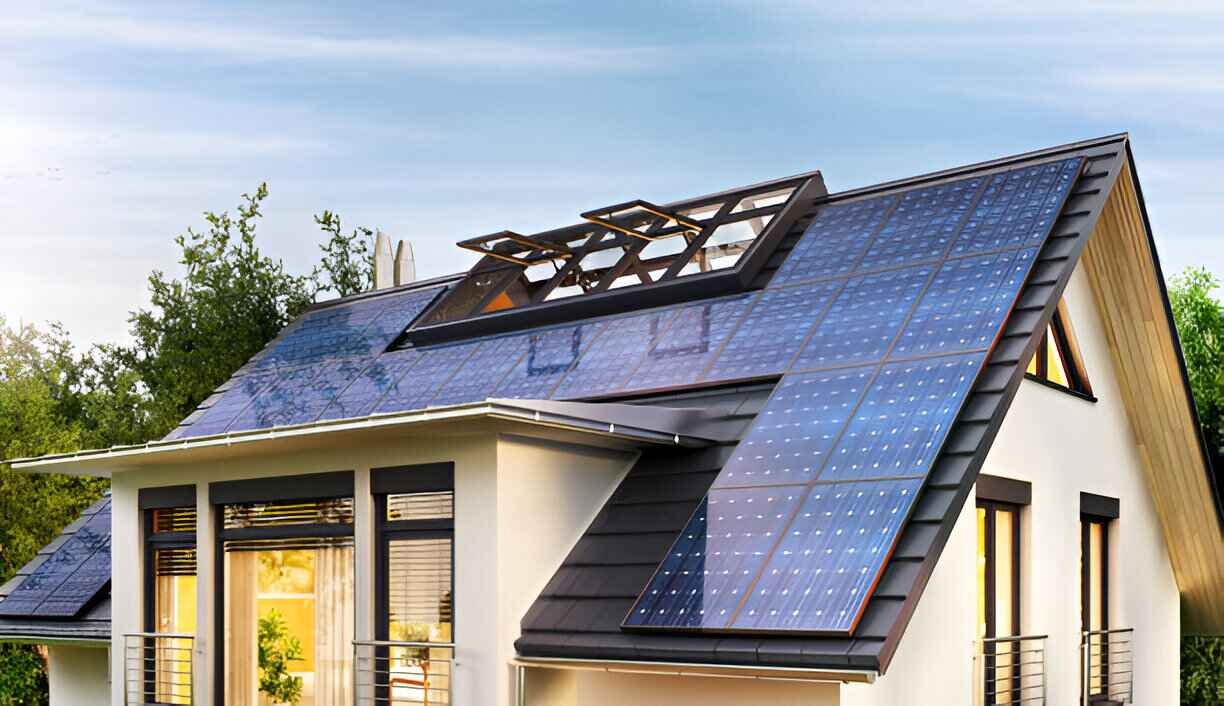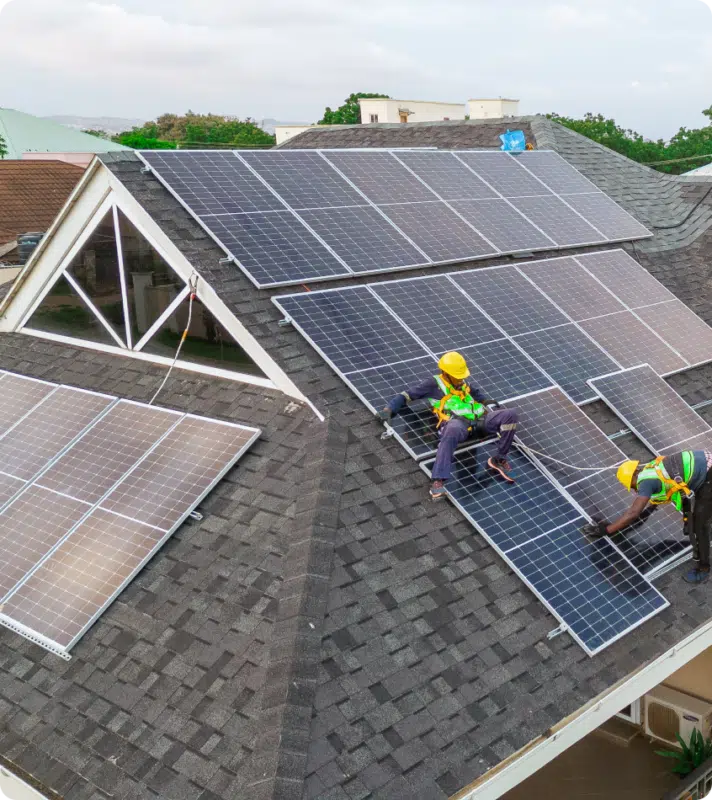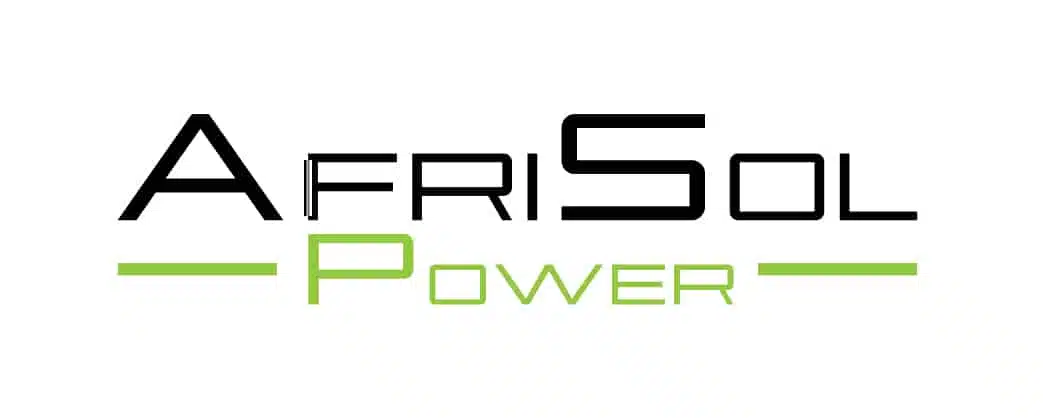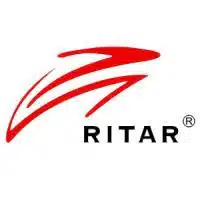Blogs
Solar panels for small business in Ghana
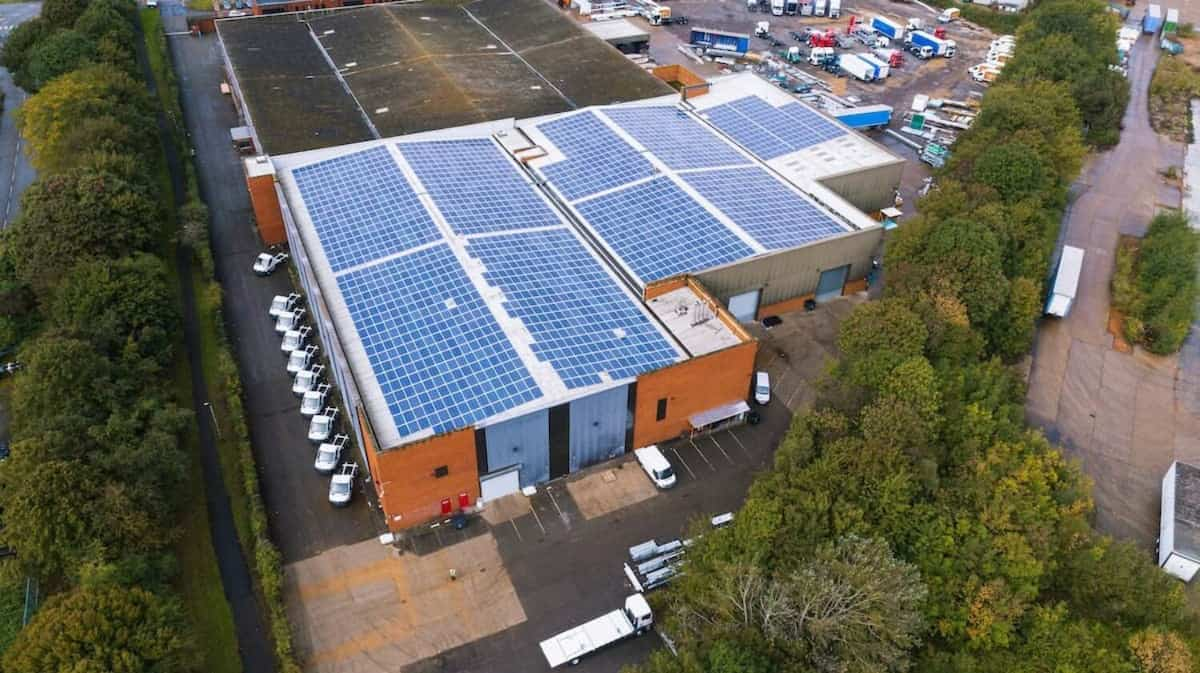
Solar panels for small business in Ghana offer a smart way to cut down on electricity costs. Are you a small business owner in Ghana looking to reduce your power bills? Imagine harnessing the power of the sun to fuel your daily operations.
Not only can solar energy reduce your expenses, but it also positions your business as a leader in sustainability. You might be wondering, “How many solar panels do I actually need? ” The answer isn’t as complicated as it seems.
By understanding your energy needs and the sunny potential of Ghana, you can determine the perfect setup. Stick around to discover how you can make the switch to solar energy effortlessly, increase your savings, and contribute to a greener planet.
Benefits Of Solar Energy For Small Businesses
Small businesses in Ghana can benefit from solar energy by reducing electricity costs. Determining the number of solar panels needed depends on energy usage, sunlight hours, and roof space. An energy audit can help calculate the right number for efficient power supply.
Switching to solar energy can provide numerous benefits for small businesses in Ghana. Not only does it cut down on electricity costs, but it also boosts your business’s reputation as environmentally friendly. Embracing solar power can be a strategic move that sets you apart from competitors.
Cost Savings
Solar panels can drastically reduce your electricity bills. Imagine redirecting those savings to grow your business or enhance your services. A friend of mine, who runs a small café, saved enough to expand her menu within a year of going solar. What could you do with the extra money?
Energy Independence
Relying on solar panels means less dependence on the national grid. Ghana’s electricity supply can be unpredictable, causing disruptions in your operations. With solar energy, you have a reliable source, ensuring your business runs smoothly even during outages.
Environmental Impact
By choosing solar, you reduce your carbon footprint. This environmentally friendly choice can attract customers who prioritize sustainable businesses. Have you ever considered how many potential customers might support your green initiatives?
Government Incentives
The Ghanaian government offers incentives to businesses that adopt solar energy. These can include tax breaks or subsidies. Taking advantage of these incentives not only eases the initial cost but also boosts your long-term savings.
Enhanced Brand Image
Going solar can enhance your brand image. Customers appreciate businesses that care about the environment. This can lead to increased loyalty and positive word-of-mouth. Have you thought about the marketing potential of being a green business?
Long-term Investment
Investing in solar panels for small business in Ghana is a long-term commitment. While the initial setup cost might seem high, the benefits accumulate over time. You’re not just saving money, but also investing in the future of your business. Are you ready to make that commitment? Switching to solar energy is more than just a trend; it’s a step towards a sustainable future. Whether you’re concerned about cost savings or enhancing your brand, solar panels offer practical solutions. What’s stopping your business from going solar today?
Understanding Energy Needs
Determining solar panel needs for a small business in Ghana depends on energy consumption. Assess daily energy usage to estimate the number of panels required. Consider factors like sunlight hours and panel efficiency to optimize energy supply.
Understanding your business’s energy needs is crucial for solar panel installation. It determines the number and type of panels required for efficiency. In Ghana, where the sun shines brightly, harnessing solar power can be a sustainable choice. Start by evaluating your business’s energy consumption patterns. This helps in making informed decisions about solar panel investments.
Assessing Business Energy Consumption
First, examine the daily energy usage of your business. List all electrical appliances and devices. Note their wattage and hours of operation. This gives a clear picture of total energy demand. For example, computers, lighting, and air conditioning are common energy consumers. Calculate the monthly energy consumption based on daily usage. Use your electricity bills for reference. This data forms the baseline for solar panel requirements.
Identifying Peak Energy Usage
Identify periods of high energy usage during the day. These are your peak hours. Common peak times include mornings and afternoons. During these hours, businesses often run at full capacity. Understand which equipment requires more power at these times. This helps in planning solar panel capacity efficiently. Peak energy usage informs the sizing of solar systems. Ensure panels can meet demands during these critical hours. Understanding energy needs is the first step to solar transition. It aids in choosing the right solar solutions for small businesses in Ghana. By assessing consumption and identifying peak usage, businesses can plan effectively. Solar panels can then be optimized for performance and cost savings.
Factors Influencing Solar Panel Requirements
Assessing the energy needs of a small business in Ghana involves considering electricity consumption patterns. Factors like business size, operating hours, and equipment usage significantly impact solar panel requirements. Understanding these elements ensures efficient energy solutions tailored to specific business demands.
Understanding the number of solar panels your small business in Ghana requires starts with evaluating several key factors. These considerations can significantly influence the efficiency and cost-effectiveness of your solar power system. Let’s explore these critical factors to help you make an informed decision.
Location And Climate Considerations
Your business’s location in Ghana can have a huge impact on your solar panel needs. Regions with abundant sunlight, like the northern parts of Ghana, allow for fewer panels to generate the same amount of energy compared to cloudier areas. Consider the annual sunlight hours your location receives to estimate your solar potential. Weather patterns also play a role. If your area experiences extended rainy seasons, you might need additional panels to compensate for lower solar production. Have you considered how varying weather might impact your energy needs?
Roof Space And Orientation
The size and orientation of your roof are crucial when determining how many solar panels you can install. A larger roof can accommodate more panels, potentially generating more energy. South-facing roofs in Ghana are optimal as they capture the most sunlight throughout the day. Have you checked if your roof’s orientation can maximize solar exposure? Roof obstructions like chimneys or vents can reduce the available space for panels. Ensure your roof structure can support the weight of the panels, and consider professional assessment if needed.
Energy Efficiency Improvements
Before investing in solar panels, evaluate your business’s energy consumption. Implementing energy efficiency measures can significantly reduce the number of panels you need. Simple actions like upgrading to LED lighting or using energy-efficient appliances can lower your electricity demand. Have you explored how reducing energy waste can cut costs and environmental impact? Consider conducting an energy audit to identify areas for improvement. By optimizing your current energy usage, you ensure your solar investment is as effective as possible.
Calculating The Number Of Solar Panels
Determining solar panel needs for a small business in Ghana involves calculating energy usage and sunlight exposure. Consider daily energy consumption and peak sunlight hours to estimate the number of panels required. Size and efficiency of panels also play a role in meeting energy demands effectively.
Calculating the right number of solar panels for your small business in Ghana is essential. It ensures you harness enough solar energy to meet your needs. This process involves understanding your energy requirements and the solar panel output. You must also consider system losses. Let’s break it down.
Determining Energy Production Needs
First, identify your business’s daily energy usage. Check your electricity bills for monthly consumption. Divide this by 30 to get the daily average. Consider any future energy needs. This includes business expansion or additional equipment. A clear energy goal helps in accurate calculations.
Estimating Solar Panel Output
Solar panels produce varying amounts of power. It depends on factors like location and sun exposure. In Ghana, the average solar panel receives about 5 hours of peak sunlight daily. Check the wattage rating of the solar panels you plan to use. Multiply the number of peak sunlight hours by the panel’s wattage. This gives you the daily energy output per panel.
Adjusting For System Losses
Solar power systems experience some energy loss. This can be due to inverter efficiency and shading. Usually, system losses are around 20%. To account for these, increase your calculated panel count by 20%. This ensures your system meets energy needs despite losses.
Choosing The Right Solar Panel Type
Selecting the right solar panels for a small business in Ghana depends on energy needs and available space. Calculate your daily energy usage to estimate the number of panels required. Efficient panels can reduce costs and maximize energy production, ensuring a sustainable solution for your business needs.
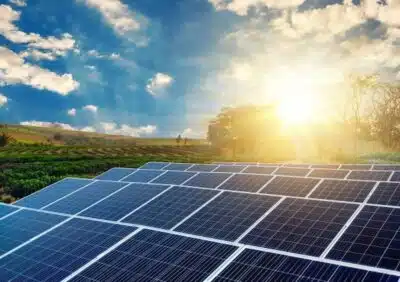
solar panels for small business in Ghana
When considering solar energy for your small business in Ghana, choosing the right type of solar panel is crucial. The decision can significantly impact efficiency, cost, and overall energy output. Let’s dive into the differences between monocrystalline and polycrystalline panels, and how they affect your business’s energy needs.
Monocrystalline Vs. Polycrystalline
Monocrystalline panels are made from single-crystal silicon. They are known for their high efficiency and sleek design. They often have a longer lifespan, making them an attractive choice for long-term investments. Polycrystalline panels, on the other hand, consist of multiple silicon fragments melted together. They are generally more affordable but less efficient. If your business operates in a space with ample roof area, polycrystalline panels might be a cost-effective choice. While monocrystalline panels can offer better performance, the initial cost is higher. Does your business prioritize long-term savings over upfront costs? This question can guide your decision.
Evaluating Efficiency And Cost
Efficiency is a key factor when selecting solar panels. Monocrystalline panels often boast efficiency rates above 20%, meaning more power is generated per square meter. If your business has limited space, these panels might be ideal. Polycrystalline panels usually have efficiencies between 15-17%. While they require more space to produce the same energy output as monocrystalline panels, they are less expensive. If budget constraints are a concern, polycrystalline panels might be the way to go. Consider how much energy your business consumes daily. Calculate how many panels you need based on efficiency rates. Would a higher upfront cost be justified by long-term savings? This evaluation is essential for a well-informed decision. Choosing the right solar panel type is not just about efficiency and cost; it’s about aligning your business needs with practical solutions. What will your energy journey look like? Dive into your business goals and make a choice that powers your future sustainably.
Installation And Maintenance Considerations
Calculate the number of solar panels needed by assessing energy usage. Consider factors like panel efficiency and available space. Regular maintenance ensures optimal performance, involving cleaning panels and checking connections for safety and longevity.
When setting up solar panels for your small business in Ghana, understanding installation and maintenance is crucial. Many business owners overlook these aspects, yet they can significantly impact the system’s efficiency and lifespan. Proper installation ensures optimal energy generation, while regular maintenance keeps your solar panels operating smoothly for years.
Working With Certified Installers
Choosing the right installer can make or break your solar panel investment. In Ghana, working with certified professionals ensures your panels are installed correctly and safely. Certified installers are trained to follow industry standards and local regulations, which can help avoid costly mistakes. Consider asking for recommendations from other business owners who have already gone solar. They can provide firsthand insights into the quality of service they received. Always verify the certifications and experience of any installer you consider.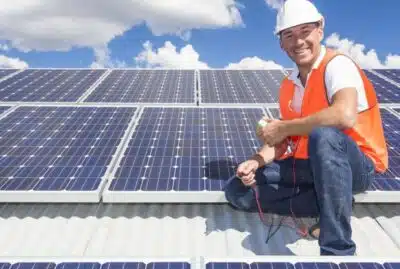
Scheduling Regular Maintenance
Regular maintenance is essential to keep your solar panels performing at their best. Dust and debris can accumulate on the panels, reducing their efficiency. In Ghana’s climate, this can be a frequent issue. Create a maintenance schedule that includes cleaning the panels and checking the system for any faults. This can be done quarterly or biannually, depending on your location and the amount of dust in the area. Wouldn’t you want your investment to last as long as possible? Routine checks by a professional can spot issues before they become costly repairs. This proactive approach not only saves money but also ensures your business continues to benefit from solar energy without interruption.
Financial Incentives And Support
Investing in solar panels for a small business in Ghana has financial benefits. These incentives make the transition easier and more affordable. Understanding these options can help you save money while supporting sustainable energy.
Government Subsidies And Grants
The Ghanaian government supports renewable energy initiatives. It offers subsidies to help small businesses adopt solar energy. These subsidies reduce the initial cost of solar panels. Small businesses can access government grants for solar energy projects. These grants provide financial relief, making solar energy more attainable.
Understanding Net Metering
Net metering is a billing mechanism for solar energy users. It allows businesses to sell excess power back to the grid. This reduces electricity bills by offsetting energy costs. Net metering encourages businesses to invest in solar panels. It provides a financial incentive by turning surplus energy into savings.
Case Studies Of Successful Solar Implementations
Exploring solar panels needs for a small business in Ghana reveals key insights. Successful case studies show efficient setups with fewer panels. Discover optimal solutions for energy independence and cost savings, tailored to local conditions.
Switching to solar power is a game-changer for small businesses in Ghana. It’s not just about saving on electricity bills; it’s about embracing sustainability and innovation. If you’re wondering how many solar panels you need, looking at real-life examples can offer valuable insights. Let’s dive into some case studies of successful solar implementations in local businesses. These examples will help you understand the practical benefits and guide your own solar journey.
Examples From Local Businesses
Imagine a small café in Accra that decided to go solar. They installed 20 panels, enough to power their lighting, coffee machines, and refrigerators. The café owner was thrilled with the savings on electricity bills, which allowed them to invest more in quality ingredients. They also attracted eco-conscious customers who appreciated their commitment to sustainability. Another example is a local printing shop that needed a reliable power source due to frequent outages. By installing 30 solar panels, they ensured uninterrupted operations and boosted productivity. The owner shared that the initial investment was recouped within three years, thanks to reduced energy costs and increased business.
Lessons Learned And Best Practices
These businesses learned that assessing energy needs is crucial before deciding on the number of panels. A detailed audit of your energy consumption can prevent over or underestimation. It’s also essential to consider future expansion when planning your solar setup. This ensures that your system can accommodate growth without additional costs. Maintenance is another key lesson. Regular cleaning and inspections keep panels efficient and extend their lifespan. You don’t want dust and debris to reduce your system’s output. Moreover, partnering with experienced solar installers made a big difference. They provided valuable advice and ensured proper installation, which is vital for optimal performance. Have you thought about the impact of solar on your business operations? Could it open new opportunities or attract different customer segments? Exploring these questions can help you make informed decisions about solar energy. Whether you’re a café owner or run a printing shop, these case studies show that solar power is not just feasible but profitable. With thoughtful planning and execution, you can transform your energy strategy and contribute to a greener future.
Frequently Asked Questions
How To Determine Solar Panel Needs For A Business?
To determine solar panel needs, assess energy consumption, location, and peak sunlight hours. Calculate your business’s daily energy usage in kilowatt-hours. Consider regional sunlight availability and roof space. Consult local solar providers for tailored solutions. This ensures optimal efficiency and cost savings for your small business in Ghana.
What Factors Influence Solar Panel Quantity?
Several factors influence the quantity of solar panels needed: energy consumption, sunlight hours, and panel efficiency. High energy demands require more panels. Regions with less sunlight need more panels. Efficient panels generate more power, reducing quantity. Evaluate these aspects to optimize solar energy for your business.
Can Weather Affect Solar Panel Efficiency?
Yes, weather significantly impacts solar panel efficiency. Cloudy days reduce sunlight exposure, lowering energy production. Panels perform best in direct sunlight. Rain can clean panels, improving performance. Seasonal changes affect sunlight hours. Consider local climate when planning your solar panel installation for consistent energy supply.
Are Solar Panels Cost-effective For Small Businesses?
Solar panels are cost-effective for small businesses in Ghana. They reduce electricity bills and reliance on the grid. Initial investment may be high, but long-term savings are substantial. Government incentives can offset costs. Evaluate upfront expenses against potential savings for a profitable solar energy transition.
Conclusion
Determining the right number of solar panels is crucial. It impacts energy savings and efficiency. Start by assessing your business’s energy needs. Look at your monthly electricity bills. Consider future growth too. Factor in Ghana’s sunny climate. More sunlight means fewer panels needed.
Consult with solar experts for precise calculations. This investment supports sustainability and can reduce costs. Choose quality panels for long-term benefits. Solar energy offers reliable power. It’s a smart choice for Ghana’s small businesses. Embrace renewable energy. It can make a difference in your business operations.
Make the switch today.









